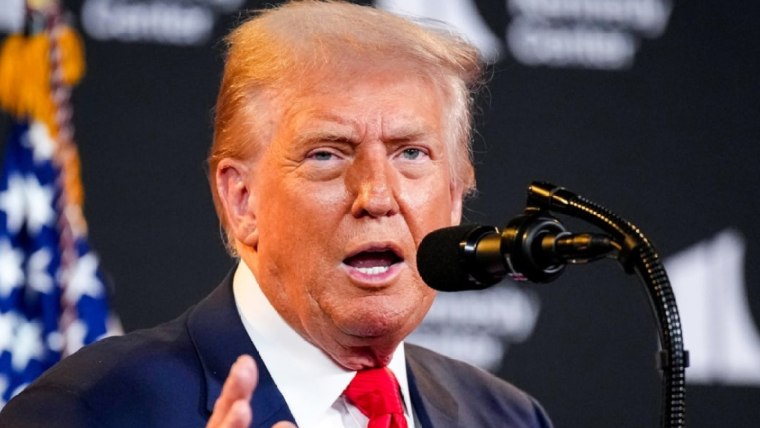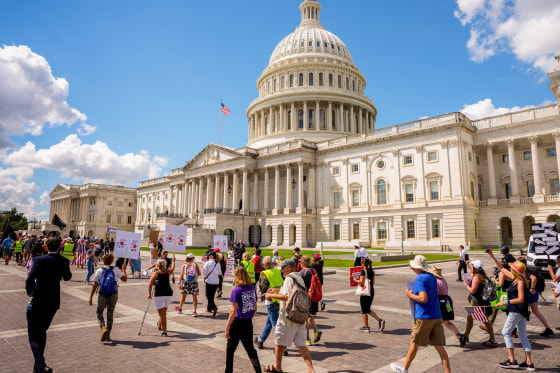Fresh off its summer recess, Congress faces its biggest test in decades.
Unlike big legislative fights of the past, this one could pass by without a notice. But the next few months will determine whether lawmakers will defend their constitutional powers or surrender them to an increasingly imperial president, perhaps for good.
The stakes are no longer theoretical. President Donald Trump’s second term has already demonstrated how fragile checks and balances become when one branch refuses to stand up for itself.
Trump has made clear that he does not intend to share power.
Trump has made clear that he does not intend to share power. In the first few months of his second term, he has rewritten the rules to give himself the power to fire federal workers he deems insufficiently loyal. He’s taken the power of the purse from Congress to decide which agencies and programs he wants to fund. He’s invoked emergency powers to take over the Washington, D.C., police and send armed National Guard troops to roam its streets.
Congress could have pushed back against these measures, holding hearings, writing laws or even just warning the president they might not support his other agenda items. But so far, they have wilted, conceding their power and even defending his right to bully them.
This is not a new problem. Members of Congress love to hold hearings, issue subpoenas and launch investigations. But when the executive branch refuses to comply, they too often shrug or even look confused. Contempt citations languish at the Justice Department, which won’t prosecute its own superiors. Court battles drag on for years, long enough to drain their urgency and neuter accountability. The Supreme Court’s 2020 Trump v. Mazars decision only slowed things further, erecting hurdles for subpoenaing presidential records. Delay has become the White House’s most reliable shield.

Congress has also surrendered its core powers over emergencies and war. When presidents declare national emergencies, they can redirect funds and expand their authority. In theory, Congress can vote to terminate such emergencies; but in practice, a single presidential veto keeps the “emergency” alive indefinitely. That’s how Trump’s 2019 border wall maneuver survived, despite bipartisan votes against it. The same dynamic applies to war powers. A bipartisan measure limiting hostilities against Iran passed in 2020, only to be vetoed. Congress folded.
After Trump’s first term, the House passed the Protecting Our Democracy Act, designed to accelerate subpoena enforcement, rein in emergency powers, and codify long-overdue guardrails. The Senate let it die. A new version sits idle today. Without reform, Congress remains structurally weak and easily bypassed. It has become irrelevant.
The danger is clear. A politicized civil service, federalized police and an executive branch staffed with loyalists will not be content to sit idle. Something else is coming, and it will be worse.
Congress doesn’t need new powers. It needs to use the ones it has. It can legislate fast-track procedures for subpoena disputes. It can revive inherent contempt by levying fines without waiting on the Department of Justice. It can reform emergency statutes so declarations expire unless Congress votes to extend them. It can attach conditions to spending bills to block funds for Schedule F or unauthorized deployments. It can reclaim war powers by cutting off funds after 30 days of unauthorized hostilities and sunsetting outdated authorizations. And it can require publication of Justice Department legal opinions that secretly expand executive power, while strengthening its own watchdogs like the U.S. Government Accountability Office and inspectors general.
Will this Congress act? Almost certainly not. Republican leaders see reform as disloyalty to Trump. But what is required now is institutional loyalty — the recalibration of power between the branches that puts Congress back on equal footing with the presidency, even when the president belongs to one’s own party.
The Framers gave Congress formidable weapons: spending, war powers, investigative powers. What they couldn’t give was courage. That must come from lawmakers themselves.
As the 119th Congress reconvenes, the choice is stark. It can continue to play junior partner while presidential power grows unchecked. Or it can rediscover its role as a coequal branch of government, capable of saying not just “we object” but “we decide.”
The hour is late. The tools exist. What’s missing is the will.
For more thought-provoking insights from Michael Steele, Alicia Menendez and Symone Sanders-Townsend, watch “The Weeknight” every Monday-Friday at 7 p.m. ET on MSNBC.

